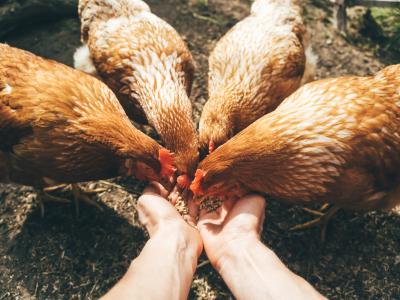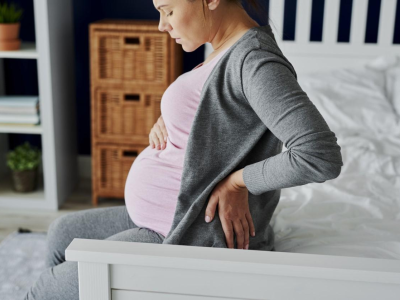Jan 26, 2010 (CIDRAP News) – Officials from the World Health Organization (WHO) and a vaccine-maker trade group at a public hearing today defended themselves against allegations from some European politicians that they exaggerated the H1N1 pandemic threat to benefit drug companies.
The hearing was conducted by the Council of Europe's Committee on Social, Health and Family Affairs on the second day of the group's parliamentary assembly. Yesterday the council rejected a request that the committee's former leader made to schedule a debate on the theme "False pandemics: a threat to health." Dr Wolfgang Wodarg, a German physician and epidemiologist, is no longer a council member, because he lost his race in Germany's September federal election. However, he has been serving as an advisor.
The theme of today's hearing was transparency issues that arise in a pandemic setting. The Council of Europe, a separate entity from the European Union, is known for working on broad issues such as civil rights, economics, and democracy. The group was established after World War II and is made up of elected officials from 47 nations.
Group airs vaccine industry suspicions
At today's hearing, several committee members pressed the WHO and vaccine company officials on two main issues. They expressed deep suspicions that vaccine industry experts on WHO advisory groups improperly influenced the WHO's assessment of the pandemic in order to financially benefit pharmaceutical companies. Council members also questioned the WHO official, Dr Keiji Fukuda, special advisor on pandemic influenza to the WHO director-general, about confusion surrounding consideration of severity in its definition of a pandemic, which was revised at about the time the novel H1N1 virus was identified.
Some government public health officials and influenza experts have strongly rejected Wodarg's claims, defending vaccine stockpiling as a prudent public health response and calling the charges "preposterous."
In his opening statement, Wodarg said he was skeptical about the threat of the H5N1 virus and the contracts that countries had in place with vaccine makers in the event of a pandemic. "WHO had the trigger," he said, alluding to the pandemic plans of some countries that activate the contracts when the WHO declares the highest alert level. He speculated that vaccine makers are making a financial windfall from what he claims are more expensive patented and adjuvanted vaccines. He also argued that the billions that governments have spent on pandemic vaccines could be better spent on other health issues.
He charged that the change in pandemic definition "made it possible to turn a run-of-the-mill flu into a pandemic and translate into millions for vaccine for no good reason."
Wodarg also claimed that adjuvanted vaccines used in Europe were not adequately tested, especially in children, and expressed doubts about the safety of cell-based pandemic vaccines.
WHO, vaccine officials defend their actions
Fukuda countered that the response to a novel influenza virus quickly sweeping the globe required unprecedented global cooperation from a broad range of groups, including pharmaceutical companies.
He said it's impossible to predict how severe a pandemic will be in the initial months, pointing out that the 1918 pandemic started with mild waves of illnesses, then turned deadly. He added that the WHO updated its pandemic planning documents in 1999, 2005, and 2009 based on the input of experts from around the world. He said the agency finished its most recent revision in February 2009 and published it last April, along with the latest pandemic definitions.
The International Health Regulations (IHR), revised in 2005, provide an orderly framework for assessing and declaring a pandemic, Fukuda said. "We have checks and balances. No one has unfettered power in making decisions," he added. An emergency committee set up under the IHR was made up of technical experts and reflected the views of countries most affected early in the outbreak. "The decision was unanimous that the pandemic criteria have been met," Fukuda said.
"Let me state clearly for the record, there was no improper influence by the pharmaceutical industry," he said.
Defending the vaccine industry, Dr Luc Hessel, chairman of the European Vaccine Manufacturers Public Health Policy and Advocacy working group, rejected the accusations of Wodarg and his colleagues and said companies did what countries asked them to do: deliver a safe and effective vaccine in a timely manner. He said governments and companies needed to make decisions early, using the best information they had at the time.
Many governments had vaccine contracts in place ahead of time to avoid complex negotiations during a pandemic setting and to ease a rapid response.
Hessel said vaccine companies have taken financial risks to expand capacity and have donated pandemic vaccine to developing countries, along with providing special pricing and reserved production capacity. "We've been a reliable and responsible partner," he said.
Calls for more transparency
But Dr Ulrich Keil, a chronic disease expert who formerly worked at the WHO Collaborating Center for Epidemiology and Prevention of Cardiovascular and Other Chronic Disease at Germany's University of Munster, who sat on today's panel, said he believes the WHO and government have misdirected public health expenditures toward threats that never panned out, such as SARS, H5N1 avian influenza, and the current H1N1 flu. He claimed the money would be better spent on health problems such as cardiovascular disease, smoking, and obesity.
During the question time from committee members, many of the officials echoed Wodarg and Keil's claims and views, while a few defended the WHO's actions and said Wodarg should back up his accusations with proof.
Fukuda responded that trust and transparency are crucial during a pandemic response and assured the group that the WHO would do all it can to improve on those goals. He spelled out some of the steps the WHO uses to assess conflict-of-interest issues that might crop up with its vaccine advisory group and said their discussions are witnessed by a wide range of outside observers, such as those from nongovernmental organizations.
He stressed that the pandemic virus remains a real threat and pointed to a recent report from the US Centers for Disease Control and Prevention (CDC) that the number of children who die from the new virus is three times higher than for seasonal flu.
Though the WHO's response might not be perfect, the early response to the threat was warranted, he said. "If a patient has chest pain, you don't wait until the chest pain is severe to do something," he said. "You take steps to prevent future harm from the disease, the same as with global issues."
Committee Chairwoman Liliane Maury Pasquier, a Swiss politician who moderated the hearing, said she believed more transparency about pandemic and vaccine issues is needed. She said the parliamentary assembly's bureau will meet on Jan 29, the last day of the meeting, to discuss again the request for a debate on the issues that Wodarg and his colleagues raised. Work on the issue could continue over the Council of Europe's next two parliamentary assemblies in June and October, after which the findings might be compiled in a final report, she added.
At a press conference that followed the hearing, journalists raised some of the same questions that committee members asked the presenters, and some pressed Wodarg to provide proof of his allegations against the WHO and vaccine companies.
Communications experts explore roots of dissent
Pandemic communications experts Jody Lanard, MD, and Peter Sandman followed today's hearing events, having served on an informal communications committee that reviewed the WHO's 2005 pandemic plan revision. Lanard has also worked as a communications consultant with the WHO's Western Pacific and Pan American regional offices. Sandman is a risk-communication expert based in Princeton, N.J
Lanard said she and Sandman are puzzled by accusations that the WHO acts to benefit vaccine makers, because in the past—for example at a November 2004 meeting with industry leaders—it has signaled that it expected companies to function like charities or governments and has squirmed when they acted like companies.
"That's why I find suspicion about WHO being in cahoots with Big Pharma to be so ironic," she said. At today's hearing one of the Council of Europe committee members said all vaccines for public health should be financed on a nonprofit basis by companies, with governments footing the bill, Lanard said. "This is a coherent socialist viewpoint with which I disagree. But I think many people at WHO would be very happy if that came to pass."
"Amazingly, WHO finds itself simultaneously accused by socialists as being in bed with industry and stoking fear about a fake pandemic, and accused by libertarians as being in bed with the People's Republic of China and covering up a severe pandemic," she said. "This is an unusually extreme result of the failure respond to outrage that has been brewing for a long time."
The claim from some of the council's committee members that the WHO took severity out of the pandemic "definition" late in the game—it appears as if the change was made at the end of April or beginning of May—is a "stand-in" for their anger at the WHO for not acting to acknowledge that the pandemic has been mild overall, so far, Lanard said.
In late May and early June, before the WHO raised the pandemic alert to its highest level, its officials downplayed using severity as a criteria, because it can relate to the vulnerability and resilience of countries, which vary from nation to nation. The WHO said it hoped to take up the severity assessment issue at a later date and that such guidance would be a useful tool for countries. At the time, it leaned toward describing the flu strain as moderate, because it was causing serious disease in those with underlying conditions, pregnant women, and even some previously healthy people.
Sandman told CIDRAP News that critics at today's hearing seemed unable to distinguish between what they called a "fake pandemic" and one that has so far turned out less severe than it might have been.
However, he said the WHO may have set itself up for unfair criticism by making the same mistake the Intergovernmental Panel on Climate Change made, which led to successful attacks on its credibility: failing to acknowledge the small piece of the truth their critics are getting right.
The critics' strongest arguments are: first, that the WHO should have more quickly admitted that the pandemic was milder than initial evidence suggested; and second, that the WHO routinely included severity among factors to be considered before raising pandemic phases, until its most recent pandemic guidance revision, published in April 2009, Sandman said.
"By failing to concede these two points, WHO gives unjustified credibility to the critics' other, much less valid claims," he said. "Good guys have a harder time than bad guys understanding the need to concede the validity of valid criticisms, even when they're packaged with invalid ones."
See also:
Jan 25 CIDRAP News story "WHO defends pandemic response ahead of Europe hearing"
Jan 15 CIDRAP News story "Analyst: Adjuvanted H1N1 vaccines helped stir Europe's debate"
Jan 14 CIDRAP News story "WHO, vaccine group deny pandemic scare charges"
Jan 13 CIDRAP News story "Health officials, experts reject 'false pandemic' charges"
Council of Europe public hearing information
Council of Europe archived hearing video
Council of Europe archived press conference video
Jun 2, 2009, CIDRAP News story "WHO drawing closer to declaring pandemic"

















